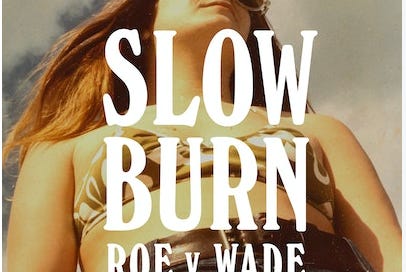New podcast explores abortion around time of Roe
Journalist Susan Matthews creates well-researched chronicle of reproductive rights and antiabortion movements during Second Wave
Several years ago, journalist Susan Matthews wondered about the history of abortion in America. She didn’t know much about it, and as someone who was fairly well-informed as an editor at Slate, she felt that she could explore the topic for her listeners and readers within her podcast Slow Burn.
Now, Matthews recently released the new season, which deals with the years leading up to the Roe decision, as well as the opinion itself and the evolution of antiabortion tactics after. The podcast has been well-received by abortion rights activists.
“Women who were fighting for this understood that reproductive freedom was essential to personal autonomy,” Matthews said.
The first episode looks at the case of Shirley Weaver, a woman who was jailed and charged with a crime in Florida after getting a criminal abortion before it was legal in the state. The fascinating story seems surreal at points.
Matthews discovered Weaver when she looked at the Wikipedia page for Roe v. Wade. Initially, Matthews had difficulty learning more.
“There was a period of time where I almost thought this couldn't have happened,” Matthews said.
The second episode focuses on Jack and Barbara Willke, who wrote the influential antiabortion manual Handbook on Abortion. That work, which was first published in 1971, is significant because it was one of the earliest attempts at using pictures of aborted fetuses as a form of protest. There were also medical distortions of facts within the literature, including the argument that women couldn’t get pregnant because of rape.
“So many things are traced back to that,” Matthews said.
The final two episodes centered on the legal battles in the courtroom, with a focus on Connecticut and the Roe v. Wade decision. Justice Harry Blackmun, who wrote the seminal opinion, intrigued Matthews. She ends the series in a poetic fashion, but I won’t give it away here. When speaking with me, she spoke about what it was like hearing about abortion before Roe as well as after it.
“All of those feelings are so visceral and so connected to just what it means to have control over your body and then your life,” Matthews said.




